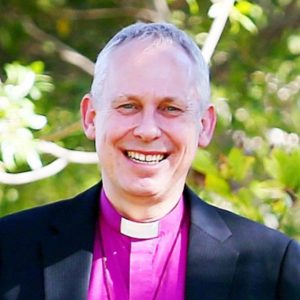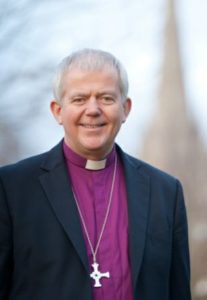 The answer to the question in the title of this blog post is a qualified yes. The Bible is bad news whenever it is used to prop up abusive and tyrannical power practices on the part of corrupt Christian leaders.
The answer to the question in the title of this blog post is a qualified yes. The Bible is bad news whenever it is used to prop up abusive and tyrannical power practices on the part of corrupt Christian leaders.
As we know the Bible is rightly treated as authoritative by all Christian churches. But for us to say that Scripture is the ultimate source for all Christian belief and understanding is not the same as saying that we always find in it clear guidelines for human behaviour. Anyone who has made even a start in reading the Bible for themselves (sadly that is not true of most Christians) will know that there are numerous problems of interpretation and application. Listening to Scripture being read and interpreted in a church service will provide an understanding only of what one individual preacher believes about the Bible. That interpretation may be sound as well as edifying but equally it may be more a reflection of the minister’s own special preoccupations and interests than what is there in the text. Such personal interpretations will sometimes be distorted by unconscious bias, whether theological or personal. When an individual minister desires to have power over his congregation, thereby satisfying some craving for importance, then we have a serious problem. Some, if not most, abuses of power in a church will be perpetrated by a minister who knows how to quote Scripture for his own purposes. The pulpit, in other words, can be a place of power, and the sermon used to enforce loyalty to a leader or to prevent members from leaving.
One of the ways that individuals within a congregation are controlled by the leadership is through the fact that the ministers there have appropriated for themselves the position of speaking on behalf of God. They have become the experts in his Word. Everyone else will be expected to defer to this expertise and superior knowledge of Scripture. Knowing Scripture well is deemed to give the minister access to the very mind of God. This authority is of course backed up by selected verses from Scripture. A typical one will be Psalm 105 v. 15. Leaders are here referred to as anointed ones.
We see how a minister has subtly acquired extensive power over his congregation in two stages. He has, first of all, appealed to the frequently made claim that Scripture is inerrant or infallible. From his attendance at Bible College the preacher is then able to claim the high ground of being an expert interpreter of all this material. If this authority to know and speak the Word of God is accepted by the congregation, then it will be difficult for anyone ever to question the detail of how Scripture is in fact understood. People get used to the idea that to hear what God wants to say to them, they have to submit, not to what the Bible actually says, but what the Bible is represented by the preacher to say. The congregation become passive consumers of authoritative sermons preached week by week. The whole process could be summarised by the statement ‘if you want to follow Jesus follow me’. The culture of many conservative churches seems almost to encourage a congregation to worship the minister as the mediator of God’s Word and God’s will rather than travel any spiritual journey of their own.
The moment that a leader is understood to present through his words the actual mind of God, then it will be a short time before he delegates this supernatural authority to other people of his own choosing. The divinely appointed leader will normally have an inner circle who will enjoy a special status of being close to him. Many of these will be flattered by the attention of the spirit filled leader and will do almost anything to hang on to the privilege of retaining this level of favour. By being close to the centre of things, the centre of divine power, the individuals concerned will achieve an enormous boost to the self-esteem. From the outside, it will be suspected that the leader has chosen these particular individuals, not for their spiritual maturity, but for their ability to be easily manipulated and controlled. Their status at the centre may be just as easily withdrawn when the mood of the leader changes to prefer another group of followers.
We have already seen how an interpretation of certain passages of the Bible has given a position of enormous power to a Christian leader. Through them he would wish to claim that he is close to God and indeed can speak for him. In the same way he will extract from Scripture other passages which emphasise his demand for unquestioning obedience on the part of the congregation. Words like submission and obedience start to become current in the accepted discourse of Bible believing congregations. Such words are often a prelude for abusive control. When we were looking at the ideas of Michel Foucault in a previous post, we noted that power abuse does not need to be constantly asserted to be effective and strong. The congregation has, over a period, learnt to accept as normal the idea that submission to the leader is submission to God. Control and surveillance by those in authority over a congregation has now become an internalised process which is operative in every member. Even if one individual wants to question or stray from these internalised ideas and assumptions of this authority structure, there will always be other people around to coerce the nonconforming person back into line. In Foucauldian language the church is operating in accordance with a ‘discourse’ of obedience and conformity to ministerial power. Ministerial power itself is rooted in a selection of texts from Scripture. But, as we have seen, these have been read in the context of a thoroughly fundamentalist and uncritical understanding of Scripture.
A third form of pressure on each individual within a fundamentalist church group is the constant plea for unity. Without doubt the Bible tells us that unity is something that is desirable and part of God’s will. ‘The body is a unit, though it is made up of many parts; and though all its parts are many, they form one body’. The message is clear: Christians belong to one another and they must do nothing to upset the state of unity that God wills for his church. But once again this discourse is and can be used to control and manipulate individuals, as well as destroy independent thinking. How can one ever raise questions within a congregation when the response will be an accusation of plotting to destroy the unity of the body of Christ?
We have identified three ways in which the Bible can be used as an abusive weapon against individual members of a church who are perceived as a threat by an insecure church leader. Once a follower has bought into the widely-held premise that the words of Scripture are the very words of God himself, a leader under threat and the church structure can move in quickly to disempower him/her and possibly abuse this individual whenever they wish. The Bible as a tool for control, obedience and the creation of a passive unquestioning unity is a very powerful weapon of potential abuse. When a survivor has, with great difficultly, extracted herself from such an abusing church, she may well ask: ‘How did I fall into the control of that leader?’ The answer that we have indicated is that the moment the Bible is given an infallibility which it does not deserve, there is a logical path clearly laid out for unscrupulous narcissistic leaders. They can easily take advantage of their position as power brokers of God and move in to control for their own purposes and for their own ends anyone in that church when they so wish. A belief in an infallible Bible is not just an item of doctrine; it is a potentially distorting and destructive idea, capable of causing many to stumble. The inerrant Bible can always be a weapon of power when interpreted by power-addicted leaders. Sadly they will always be among us and we must learn to be alert to them whenever they appear.







